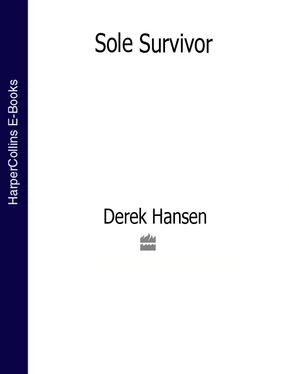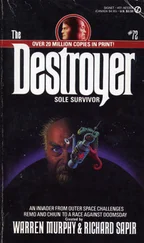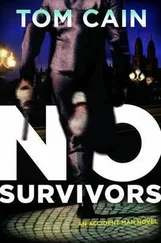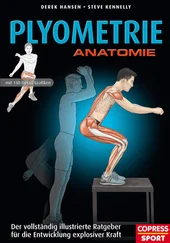“Red—you don’t mind me calling you Red?—would you please call me Mickey.” He gave Archie one last pat and stood. His uniform had crumpled into familiar folds. The crease in his trousers zigzagged as if unsure of the way to his shoes. “I’ve been called Mickey ever since I started school. My parents hated it, and I hate it. But when they named me Michael Finn, what the hell did they expect?”
Red snorted, an attempt to laugh by a man who had forgotten how. Mickey’s charm was beginning to bite and had a pleasantly familiar ring, like the laconic good humor of the Aussies. A young woman in naval uniform interrupted them with the tea, coffee and Archie’s bowl of water. She appeared very young to Red, almost too young to be in uniform. But then, they’d all been young once.
“Third Officer Gloria Wainscott, my ever-so-efficient assistant. Red O’Hara.”
Red rose awkwardly to his feet and held out his hand uncertainly. He wasn’t sure that shaking hands with women was the right protocol. Women made him uncomfortable and brought back memories.
“Pleased to meet you, Mr. O’Hara.” The young woman blushed, disconcerted. Red was staring at her. No, not at her. It was as if he was staring through her, past her to some distant spot only he could see. Gently but firmly she pulled her hand from his grip, and drew the only other free chair up toward the desk. The lieutenant commander gave her a quick glance and cut in.
“Red, is it okay if Gloria joins us? If you prefer …”
“No, it’s okay,” said Red, anxious to please and get the interview over. He ran a finger around the collar of his shirt, pulled at it until the top button gave.
“Right,” said Mickey. “Take your tie off before you choke. While we have our tea, just let me fill you in. Some of this you’ll know already but it won’t hurt to hear it again. Up until January this year our territorial waters extended only three miles from shore. That’s not a lot of water to protect unless you’ve only got four patrol boats to protect it, which is all we had. Despite the blurb our publicity department put out, we did a lousy job. So lousy that at the beginning of the year the government extended our territorial waters to twelve miles, on the theory that if we can’t catch poachers inside three miles, we can catch them inside twelve. When the navy pointed out that they’d actually increased the area of water we had to patrol by four hundred percent, they solved the problem by giving us two more patrol boats. Bit like sending school prefects out to control the mafia.”
“You’re still better off,” said Red quickly, unsure whether he was allowed to comment.
“True. Except that Japan refuses to recognize the twelve-mile zone and has appealed to the International Court of Justice. It’s just a delaying tactic, of course, because our people in Japan know that five prefectures there are about to follow our example and impose their own twelve-mile limits. In the meantime, the Japanese are grabbing all the fish they can and coming down heavy on our guys in trade negotiations. Japan is a major buyer of our wool, so their kanji kaisha —their champion negotiators—simply linked the needs of New Zealand sheep farmers with the needs of Japanese fishermen. The result? They run rings around our blokes, and our government agrees to license a limited number of longliners to fish as close as six miles from the coast. Give us twelve miles and our Sunderlands stand a chance. Give us six and the Japanese skippers laugh at us.”
“What do you want me to do?” asked Red.
“I’ll get to that. How’s the tea?”
“Fine.”
“What the government fails to appreciate is that we’re up against the most sophisticated and aggressive fishing fleets in the world. Everybody’s heard about the cod wars off Iceland, but believe me that’s just a sideshow. We’ve got the Japs, and they’ve got the best fish finders in the world, the best techniques, the biggest nets, the longest lines, the most dedicated crews, and they’ve got radar that can find us, often before we can find them. Their dories are faster than anything we’ve got except the Sunderlands, and the flying boats can only photograph poachers but can’t catch them.
“We’ve also got the Russians, who tend to fish out deeper but are not averse to a bit of poaching, either. Their mother ships are equipped with electronic surveillance gear so they can do a bit of intelligence gathering on the side, which, of course, also means they can keep better tabs on us than we can on them. Then there are the Taiwanese, the Chileans and even our friends the Americans. At any time there can be as many as twenty to thirty foreign boats harvesting the waters around New Zealand. Against this armada we have six Fairmiles. Six pathetic Fairmiles.” Mickey Finn stopped talking and took a long sip of coffee. Red shifted uncomfortably in his seat.
“What about the Sunderlands?” Red asked.
“Ahhhh … our ace in the hole. A dozen Sunderlands patrolling night and day and a government with balls, and our problem would sail peacefully over the horizon. At least beyond the twelve-mile limit. But we never have more than one Sunderland up at a time and we’re lucky to get that. They’re not ours, they belong to the air force, Number Five Squadron, so we have to rely on interservice cooperation. They’re not bad, the blokes out at Hobsonville, and the aircrew are as committed to nailing the Japs as we are. But it makes things difficult. For example, I can convince my superiors that an intercept is in order, but they in turn have to convince their opposites in the air force. And those blokes have heavies breathing down the phone at them, as well. The Aiguilles operation was ours. We’d planned to intercept that Jap bastard before he reached the Coromandel Peninsula. By the time I’d convinced our guys, and our guys had convinced their guys, and somebody from both services had put their gold braid on the line, two weeks had passed, and you know what happened then. The air force got egg on its face and flipped it neatly onto ours. Christ, you should’ve been here. The phones were on meltdown. Your unfortunate intervention is only going to make it harder for us to get a Sunderland next time.”
“Sorry.”
“Don’t worry about it. That’s history. We have to accept that the current system doesn’t work, and we have to get a whole lot cleverer. It’s no good you or the fisheries ringing us with sightings of poachers, because by the time we do anything about them they’re long gone. They’re too fast and too smart. Our only chance of success lies in targeting the most incorrigible poachers, learning how they operate and then setting a trap for them. To do that, we need an informal network of dedicated observers to keep us informed. That’s where you come in.”
Red leaned forward expectantly, his nervousness forgotten. Mickey found himself pinned by the most startlingly intense eyes he had ever seen. He forced himself to continue.
“You may have read recently that the navy was throwing additional resources behind solving the problem of poaching. I am those resources, or should I say, Gloria and I are those resources. We have been assigned to the fisheries protection squadron to gather intelligence and formulate strategies to counter incursions by foreign vessels. I have some control over the operations of our patrol boats, but in reality I can’t actually do anything without informing my superior, Staff Officer Operations, who in turn reports to Commodore Auckland. This particular Staff Officer Operations is a button polisher and social climber. Rumor has it that he’s never actually set foot aboard a boat. It’s also fair to say that nailing poachers is not the navy’s highest priority. Nor is it necessarily the government’s. There are plenty of people in power who don’t want us to catch the Japanese, fearing the effect incidents might have on our trade relations. They’re worried the Japanese might stop buying our beef or our wool. The government talks big but isn’t prepared to back its words. Yet despite this, we believe we can have some impact. With your help.”
Читать дальше












